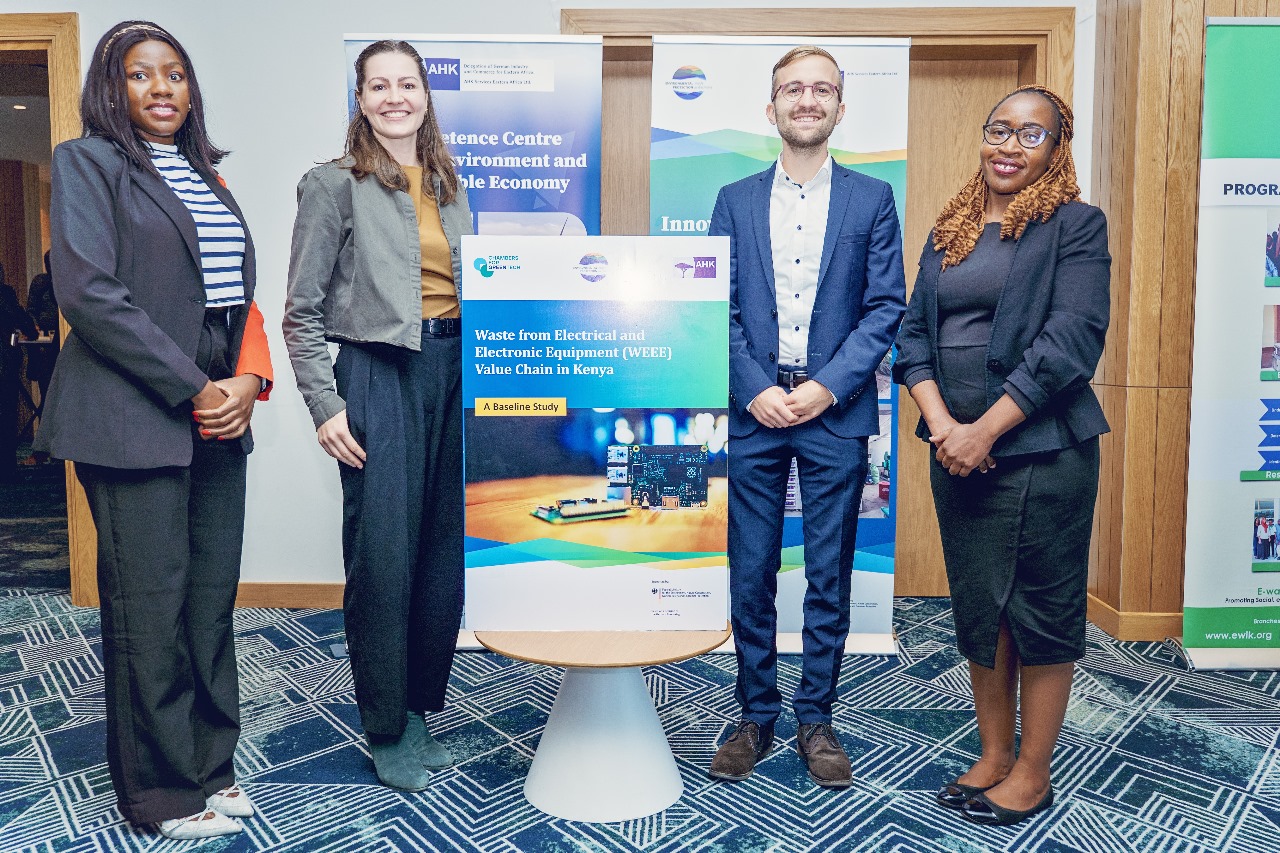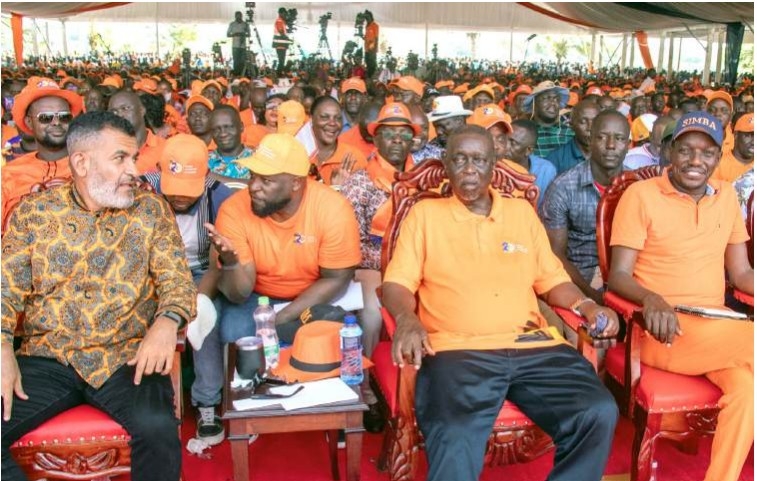 L–R: Maureen Adongo, George Pflomm, Hanna Dittmeyer, and Bronwyne Andabwa of AHK Services Eastern Africa Limited during the launch of the baseline study on the Waste from Electrical and Electronic Equipment (WEEE) Value Chain in Kenya./HANDOUT
L–R: Maureen Adongo, George Pflomm, Hanna Dittmeyer, and Bronwyne Andabwa of AHK Services Eastern Africa Limited during the launch of the baseline study on the Waste from Electrical and Electronic Equipment (WEEE) Value Chain in Kenya./HANDOUT
Kenya will host its first Waste Electrical and Electronic Equipment (WEEE) Innovation Summit this month as the country confronts the rising challenge of electronic waste.
The three-day summit, scheduled for September 16–18 at Strathmore Business School in Nairobi, is part of the Kenyan-German GreenTech Innovation Program on WEEE.
The programme, running from 2024 to 2025, is funded by the German Federal Ministry for the Environment, Nature Conservation, Nuclear Safety and Consumer Protection (BMUKN) through its Export Initiative Environmental Protection and implemented by AHK Services Eastern Africa Ltd.
The initiative aims to strengthen Kenya’s e-waste sector by promoting research, knowledge-sharing, and innovation.
The opening day will feature official ceremonies, showcases on informal sector models, and sessions on lithium-ion battery reuse.
It will also include pitches from Kenyan and German companies in the WEEE sector. A highlight will be the announcement of a winner from a competition among Kenyan recyclers for the use of a German recycling machine.
The second and third days will consist of invite-only workshops led by Kenyan and German experts.
These sessions will cover WEEE collection models, scalable business solutions, SME capacity building, and recycling technologies.
Kenya currently generates about 80,000 tons of e-waste annually. Yet, only two licensed facilities recycle a fraction of it, handling about 240 and 135 tons per year, respectively.
Most e-waste is either managed by informal actors with limited tools or disposed of without proper safeguards.
In November 2024, Kenya became the first country in East Africa to introduce Extended Producer Responsibility (EPR) regulations, which make producers responsible for the entire lifecycle of their products.
This move is expected to expand take-back schemes, strengthen Producer Responsibility Organizations (PROs), and boost investment in recycling infrastructure.
For companies, the regulations come with stricter obligations, but they also open opportunities in the fast-growing circular economy, especially in electronic waste management.
“E-waste is one of the fastest-growing waste streams in Kenya, and tackling it requires international partnerships and close collaboration between private sector players and the government,” said Christian Engels, General Manager of AHK Services Eastern Africa Ltd.
“Through our programme, we are linking German know-how and EPR experience with Kenyan innovation. Together with our partners, we are transforming regulatory changes into practical solutions that support companies across the e-waste value chain and promote circularity and sustainability,” he added.
Speakers at the summit will include Alexander Fierley, Deputy Head of Mission at the German Embassy in Nairobi; Dr. Ayub Macharia, Director at the National Environment Management Authority (NEMA); Zilpher Owiti, Acting CEO of the ICT Authority; Lea von Bressensdorf, Co-Project Lead at the Chambers for GreenTech, DIHK Service GmbH; and Engels himself.
The programme has already made strides ahead of the summit. It has delivered a comprehensive baseline study on e-waste flows, provided capacity support for the Electronic Producer Responsibility Organization of Kenya (EPROK), and facilitated expert exchanges between German companies and Kenyan stakeholders.
By hosting the summit, Kenya is positioning itself as a leader in electronic waste management in the region and setting the stage for a more sustainable approach to tackling the e-waste challenge.














![[PHOTOS] Ole Ntutu’s son weds in stylish red-themed wedding](/_next/image?url=https%3A%2F%2Fcdn.radioafrica.digital%2Fimage%2F2025%2F11%2Ff0a5154e-67fd-4594-9d5d-6196bf96ed79.jpeg&w=3840&q=100)
